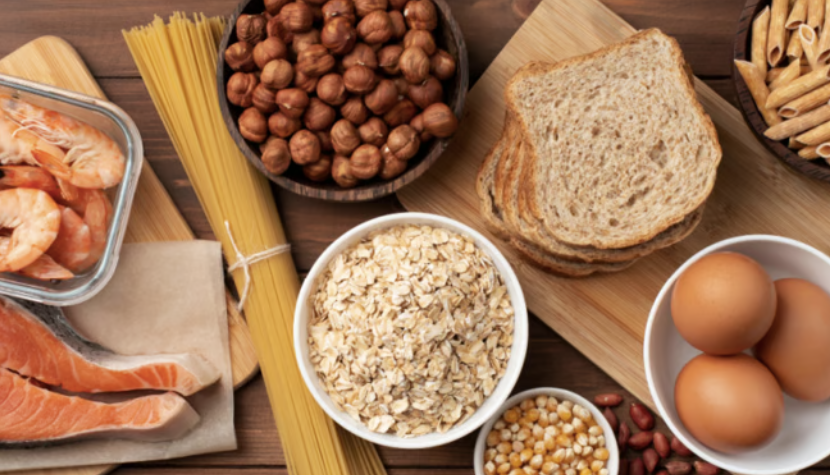10 types of 'sensitive foods' that not everyone knows
In addition to dairy products, eggs, peanuts and shellfish can also cause some people to have food intolerance symptoms.
Food intolerance is also known as food sensitivity and should be distinguished from food allergy.
Food allergy is a reaction of the immune system while intolerance is a problem with food digestion. Symptoms of allergy include: Vomiting, diarrhea, dermatitis, difficulty breathing, swelling, itching, rash, anaphylactic shock. While bloating, flatulence, abdominal pain, diarrhea are symptoms of intolerance.
Foods that can easily cause intolerance
Dairy products
Many people are lactose intolerant due to a lack of lactase, the enzyme needed to digest the lactose sugar found in dairy products.
Dairy products contain a protein called casein. Casein can be difficult to digest and lead to inflammation in the digestive system.
Milk intolerance can cause gastrointestinal, respiratory, or skin reactions.
Foods to avoid: Milk, cheese, butter, yogurt, cream or any products derived from cow, goat or sheep milk.
 |
Bloating, abdominal pain, and diarrhea are symptoms of food intolerance. Source: healthnews.com |
Gastrointestinal symptoms such as bloating, nausea and diarrhea may occur.
Once you have eliminated eggs from your diet for a while, you can try the yolk and white separately to gauge your reaction. You can avoid intolerance symptoms by following the diet as if you were allergic to eggs.
Peanuts
Even if you don't have an allergy to peanuts, you can still have an intolerance, with respiratory or digestive symptoms that may occur.
Foods to eliminate: Peanuts, peanut butter, candy and baked goods containing peanuts.
Shellfish
If you are intolerant to shellfish such as clams, crabs, lobsters, oysters, and shrimp, you may experience digestive symptoms. However, you will not go into anaphylactic shock like you would if you were allergic to them.
Gluten
Some evidence suggests that gluten sensitivity may be a cause of irritable bowel syndrome (diarrhea, constipation, and bloating).
Some grains that contain gluten include: Wheat, barley, rye, spelt, spelt, Kamut. Check food labels because gluten may be present in breads, pastas, cereals, cereal bars, crackers, sweets, drinks, condiments, sauces, and processed meats.
Corn
If you have a corn intolerance, you may not be able to digest corn or experience digestive upset when you eat foods made with corn. Irritable bowel symptoms, such as changes in bowel movements, abdominal pain, and bloating, may also occur.
Foods to avoid: Corn, canned corn, popcorn, corn syrup, baking powder (read labels carefully),...
Soybeans
Many adults attribute their irritable bowel symptoms to eating soy products.
Foods to avoid: Tofu, edamame, soy sauce, teriyaki sauce, miso, tamari, fried Indonesian fermented soybeans, vegetable protein derived from soybeans. Be sure to read food labels carefully, many protein bars, snacks, pastas, cereals, and meat substitutes are made with soy (like soy protein).
Beef, pork
If you are intolerant to certain types of meat, you may experience indigestion, nausea, and bloating. Try to find meat sources that are pasture-raised, and pay attention to how they are raised and fed.
Coffee
People who are intolerant to caffeine often experience digestive upset. If you are going to cut out coffee and coffee drinks like lattes and mochas, you should wean yourself off coffee gradually to avoid caffeine withdrawal symptoms.
Foods high in FODMAPs
FODMAPs are a type of carbohydrate that is fermentable, poorly absorbed, and soluble. Some people cannot tolerate these foods, causing digestive symptoms.
Food additives
Some people are intolerant to ingredients in foods rather than the food itself. The most common food additive intolerances are food coloring, sodium benzoate, and sulfites./.
